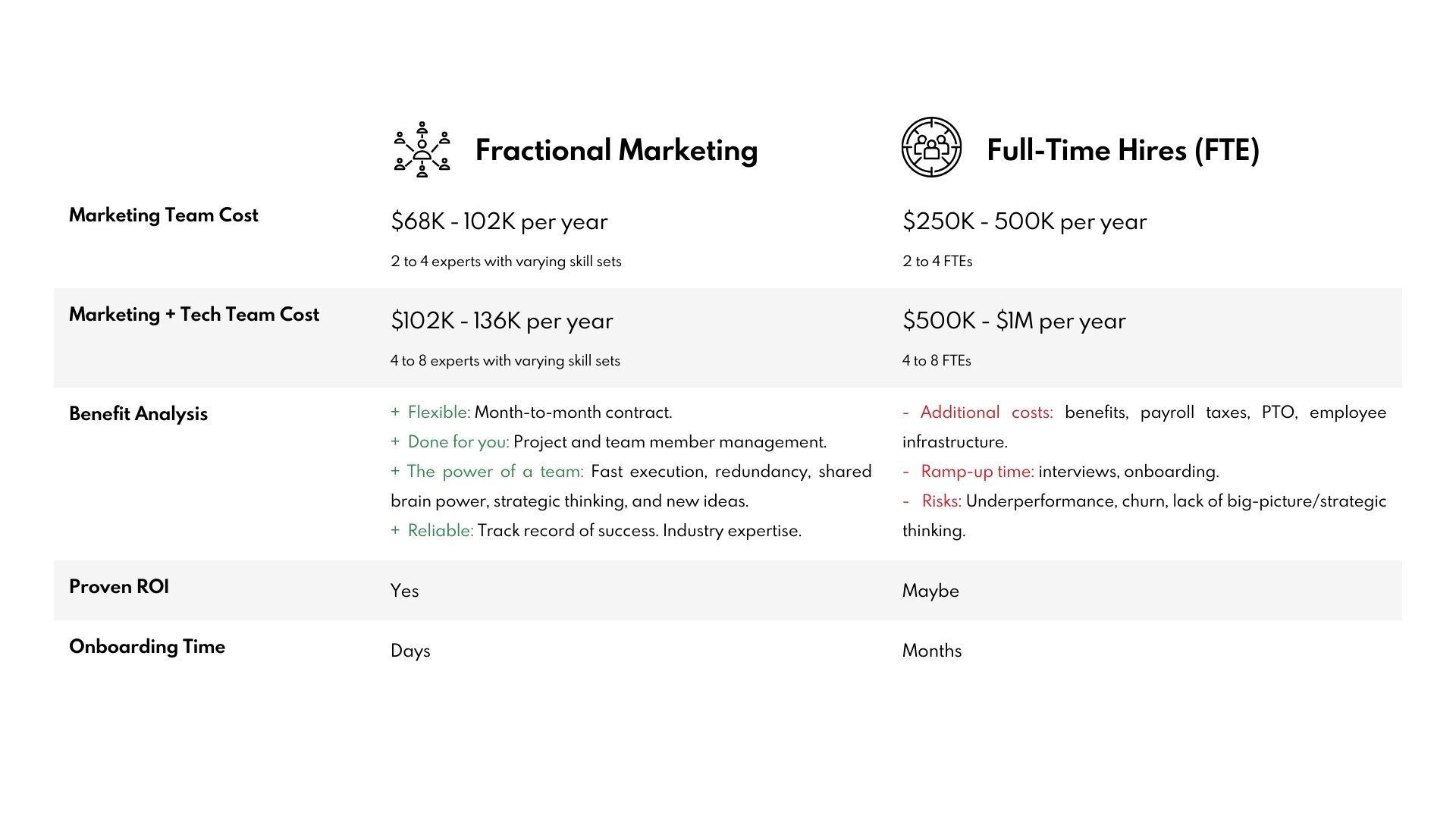How to Recession-Proof Your Marketing

- Businesses should proactively develop financial and marketing strategies to sustain profitability during recessions.
- Industries providing essentials such as healthcare and utilities are generally more recession-proof due to consistent demand.
- Vulnerable sectors like leisure, retail, and real estate often struggle due to their reliance on discretionary consumer spending.
- Diversifying revenue streams and strategic marketing investments can help businesses weather economic downturns.
- Building strong supplier relations and utilizing scalable digital marketing can enhance stability during challenging periods.
Surviving an Economic Downturn
Ever since the COVID-19 pandemic hit, the U.S. economy has been suffering from an economic downturn, which begs the question: Has another recession hit the U.S.? For context, a recession is a period of slowed economic activity that lasts anywhere from a couple of months to over a year, causing the GDP to decrease to an extent.
The most recent recession in the U.S. was the Great Recession which took place between 2007 and 2009. Whether or not there is another recession happening now has been a subject of debate, but due to persistent inflation, concerns about a recession are entirely valid. Recessions are nothing new in the world of economics, but they can truly set back business if they are not careful. With this in mind, it is important that entrepreneurs everywhere work toward operating recession-proof businesses.
How A Recession Can Affect Businesses
Not every business is affected by a recession in the same ways, but all business owners should be concerned. Recessions often lead to more layoffs and budget cuts, marketing budget cuts included. Companies tend to lose more money and resources than they require to function. With a decrease in consumer spending and clients taking their business elsewhere to save money, then there will be a shortage of business opportunities, which can be quite problematic for startups and small businesses. Fortunately, there are various financial and marketing strategies that business owners can use to help their businesses maintain their profitability and customer base during a recession.
What Kinds of Businesses Are Recession-Proof and Why?
It is important to understand the differences between businesses and why they fare differently during recessions. Some types of businesses are already recession-proof by default. These are typically businesses that provide necessities, public services, and important utilities. These would include financial services, auto maintenance, grocery, supplies, healthcare, childcare, and technology among others. Recessions don’t affect the success of these industries in the same way, so, therefore, they are mostly protected from the unpredictability that other businesses would suffer from without taking preventative measures.
What Kinds of Businesses Are the Most Vulnerable During Recessions and Why?
The businesses that are the most vulnerable during recessions are those in vulnerable industries. Vulnerable industries include real estate, restaurants, leisure and hospitality, manufacturing, and retail, among others. These are industries that suffered significantly during both the Great Recession and the COVID-19 pandemic.
The reasons behind these industries’ struggles are the decrease in consumer spending, which the industries depend on, and the fact that they are not necessities, but luxuries. For example, during the earlier stages of the COVID-19 pandemic, restaurants closed all over the country but grocery stores had to stay open. Depending on the severity of the recession, sometimes businesses of these varieties struggle for a long time after it happens, or sometimes never recover and have to close permanently.
Why Smart Companies Outsource Marketing
Discover the strategic advantages of partnering with agencies for scalable growth.
Tips For Recession-Proofing Your Marketing
Emergency Preparation
Knowing what recessions can do to businesses, it is important that businesses be proactive. Listed below are some useful tips to help business owners and marketing leaders prepare for a recession.
Plan of Action for Your Marketing Strategy
In case of a recession, marketers should have a plan of action to avoid having to scramble once the economy worsens in the areas the companies are located in. If you prepare your marketing strategy to respond to the recession, you can make good decisions when the recession does inevitably hit.
The company’s marketing leadership should decide beforehand what cuts or investments to make and who does what and for how long should certain situations arise. Obviously, recessions can be unpredictable, so businesses can’t plan out absolutely everything perfectly, but covering as many bases as possible won’t hurt.
Companywide Recession Considerations: Early Financing
Marketing leaders are business leaders. It is imperative that you understand the basics of financing and can make recommendations at the boardroom table.
Financing the business early prevents further financial trouble in the future, especially during a recession, where pre-existing financial troubles that have piled up over time can be made even worse. Businesses should hire a financial advisor to help them through each step in the financing process.
Paying Off Debt
Just as everyone wants to graduate from college without student debt, businesses want to take on local and global crises without debt. Before a recession begins, companies should pay off as much debt as possible. Having too much debt while struggling to make more money can be extremely detrimental to any business prone to such issues. Having less debt, on the other hand, means more capital for the business.
Marketing Investments and Expansion in a Recession
Businesses, don’t have to let a recession stop them from making big decisions. As long as investments in marketing and the business as a whole are thought through thoroughly and strategically, small business owners and enterprise organizations can still take strategic chances to build up their resistance to economic downturns as they happen.
Despite the increasing need to cut costs during a recession, businesses can still comfortably invest in and optimize their marketing as long as it’s the right kind of marketing. Listed below are some examples of important decisions that businesses can still make during a recession.
Revenue Streams
Having multiple revenue streams is a wise decision because the company can still make money while both maintaining a connection to its current customers and attracting new customers with new products that can appeal to new target audiences. Having multiple revenue streams means that even if a recession makes it harder to make money in some ways, the company still has other ways to make money so the cashflows don’t go stagnant. Low-cost investments in marketing to new customer segments can make a tremendous difference during difficult economic times.
Strategic Partnerships
The right partnerships can be good sources of support, security, and profitability that help businesses survive recessions. This can include choosing the right agencies from which to outsource marketing. Outsourcing is another practice that can protect a business during a recession because it is cost-effective, can be done online, and provides assistance that keeps businesses afloat as well as helps them grow, even in less ideal circumstances. Marketing agencies can provide new perspectives and ideas that can really benefit businesses long-term.
Invest In Marketing
Lead Generation
There are many marketing initiatives that can be taken to increase lead generation at a lower cost during a recession, and a lot of these fall into the category of inbound marketing. Inbound marketing is the process of making sure potential customers become loyal existing customers by creating a more personalized and focused experience for them. Inbound marketing has multiple cost-effective elements.
Search Engine Optimization (SEO), for example, is a strategy in which utilizing certain keywords as much as possible can make it easier for people to find the business’s website online and by extension find the kind of information they are looking for. The goal is to attract the right people with the right keywords. For example, if a business sells pet food and they want to attract a target audience of pet owners whose pets have certain food sensitivities or allergies, a good keyword to use would be dairy-free dog food.
Hosting free webinars is another inexpensive thought leadership lead-generation tactic that has been proven to work rather well across most businesses. Free trials are also smart because it gives potential customers the option to try out the business’s services without having to commit yet, which increases their chances of paying to stay long-term if they are satisfied.
Email marketing and social media marketing are both inexpensive to utilize, but it is important to keep in mind that there is no guarantee that someone will respond to an email right away if at all, and if the business is on social media, they will need to make sure that they are posting quality content on a regular basis and attracting a significant following. If businesses can do this, then the cost-effectiveness of these strategies increases.
Fractional Marketing
Fractional marketing is both a type of outsourced marketing and a type of digital marketing that is more organized, selective, and strategic. Fractional marketing teams are utilized short-term, which costs less than hiring marketers full-time. In a recession, businesses might not be able to afford a full-time marketing team, and if they can afford it, then they might not need it.

With fractional marketing, businesses still have resources, but they apply them to specific, time-based marketing campaigns and projects that only need part-time expertise. This way, businesses can achieve their goals of increasing their lead generation, brand awareness, and the total number of sales more efficiently and effectively, and in a more focused way. In other words, fractional marketing helps businesses grow overall for a lower cost, which can keep them afloat during the recession and beyond if they continue to utilize this practice.
Nurture Campaigns
A nurture campaign is a marketing tactic dedicated to lead generation and lead nurturing, notably through email marketing. Maintaining relationships with customers and clients is crucial during a recession. It is important to continue messaging clients to form good relationships with them. Regular utilization of email marketing keeps up steady communication with existing customers as well as new customers who are hoping for a good customer experience during a time when it’s harder for the consumer. While gaining new customers is still important, the immediate goal is to make sure the customers who are already committed to the brand stay that way. That way, even if gaining new customers proves challenging, the business won’t lose its existing customers, and therefore, will maintain some stability.
Nurture campaigns are similar to drip campaigns, as they both involve email marketing, but they serve different purposes. Drip campaigns aren’t as invested in the buyer’s journey and are more sales-oriented. Nurture campaigns are less about obtaining another sale, and more about connecting with the customers, engaging in their interests, and personalizing their experiences. This tactic, while it does involve marketing, feels more genuine. The marketer, instead of aimlessly flooding a customer’s inbox with spam, emails the customer on a regular schedule with important updates and content tailored to that customer’s interests.
Global Expansion
Global expansion probably sounds like a gamble during a period of economic uncertainty, but there are several advantages to doing so. Global expansion can help a business pull ahead of its domestic competition by increasing the number of customers, revenue streams, resources, and profitability. Having customers and employees from various countries and cultures can provide a business with helpful and enriching learning experiences.
Businesses that intend to expand globally should make sure to make strategic partnerships, form a reliable international team, and do thorough research on cultures, languages, and customs. Market research is another important element to keep in mind when expanding a business globally. What does the stock market look like country by country? Once these important elements have been taken into consideration, the businesses should adapt their practices, policies, and approaches to be successful in each location they plan to become based in.
Communications and Relationships
Stay Active on Online
Continuing to regularly engage in digital marketing is cost-effective and can still provide a good customer experience to the consumer. Keeping the website up-to-date and easy to navigate makes it easier for customers to do their research so they can tell whether buying from a company will be a smart choice for them during a time when they have to be careful with their spending. Companies should also stay active on social media as another way to continue these marketing efforts. Social media platforms that can be used include LinkedIn, Facebook, Twitter, Instagram, WhatsApp, and TikTok.
Supplier Negotiations
Recessions are difficult for supply chains, so negotiating well with suppliers is another useful strategy. Supply chains suffer greatly during economic downturns, so businesses need to work well with them to make sure that both parties feel supported. Ultimately, taking more innovative and collaborative approaches helps both the business and the supply chain adapt to change together. Tips for doing so include taking a closer look at contracts to analyze what needs renegotiations and what doesn’t, marketing the company to the suppliers as a worthy customer, and going over different costs together to decide what needs more spending and what can get by with less spending.
Taking Care of the Workplace
Every part of a business can struggle during the recession, so it is important to address and adapt to workplace needs. Businesses can do this by measuring their performance through Key Performance Indicators (KPIs) and metrics. These tools will help them track their progress and assess and evaluate their needs. They can build up their employees’ skill sets so everyone can effectively do their part in helping the business function.
Furthermore, employee turnover is expensive for businesses. Lost productivity and onboarding new employees cost money. Find ways for employees to get more involved in a way that they find engaging. For example, employees feel appreciated and more motivated when given the chance to brainstorm and problem-solving.
To decrease stress and prevent burnout, it is also a good idea to take the need for a work-life balance more seriously. Give them an opportunity to work remotely if they so choose, which is cost-effective and could increase their productivity. These strategies can make the work environment more enjoyable and increase the likelihood of employee retention.
Scaling Back
Cutting costs is a delicate balance. Businesses need to cut back on expenses to save money and invest in more cost-effective practices and resources without selling themselves short. This is challenging because, on the one hand, businesses want to hold onto loyal and talented employees, but at the same time might need to downsize.
Cutting back on clearly unnecessary expenses is simple, effective, and relatively low-stress. It’s a wise decision regardless of a business’s economic status, but it is a particular saving grave during a recession. Unnecessary expenses include overhead, seldom-used subscriptions, and real estate and technology that might not be needed in the future, especially now that remote work has become the new normal for B2B.
Conclusion
In summation, whether or not the U.S. has been going through a recession is up for debate, but the recent inflations are reasons for businesses to take the same precautions that they would in a confirmed recession. Businesses should prepare for anything as much as possible through pre-recession planning, adapting their practices to accommodate the workforce during the recession, eliminating financial liabilities, staying well-connected, and continuing to focus on growth. The main takeaway from all of this would be for business owners to keep their minds open to opportunities. Recessions are difficult and stressful in general, but running a business in one doesn’t have to be.








